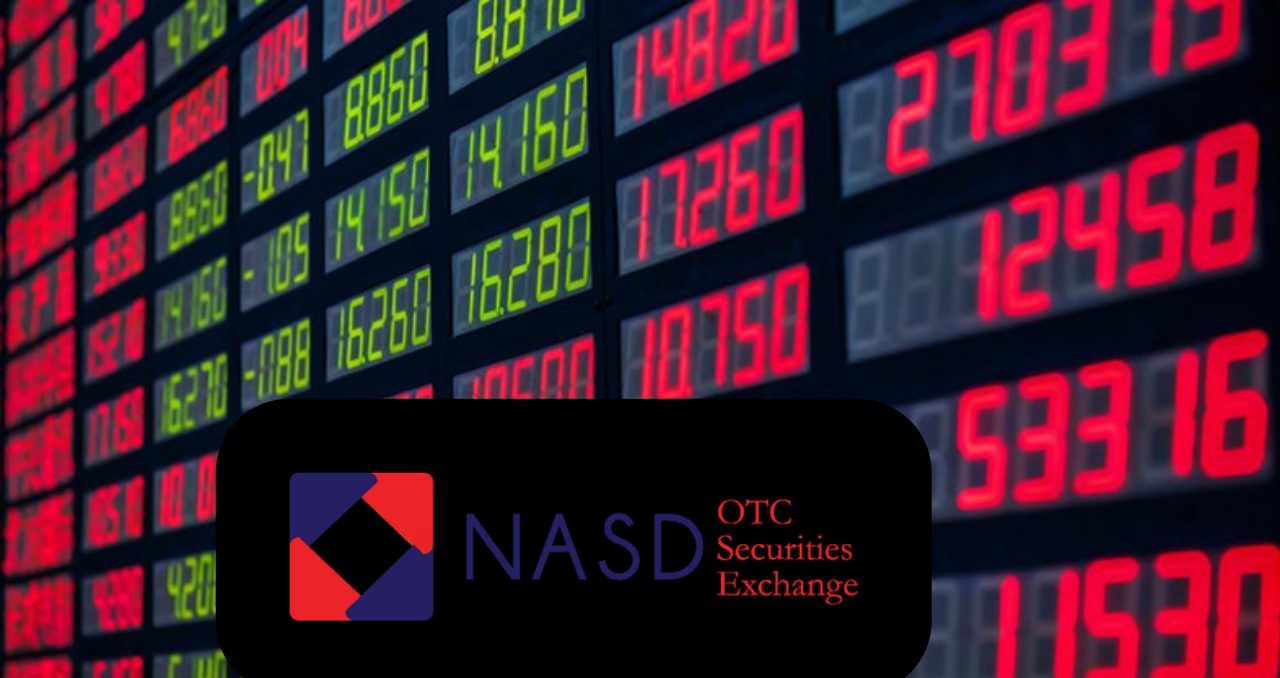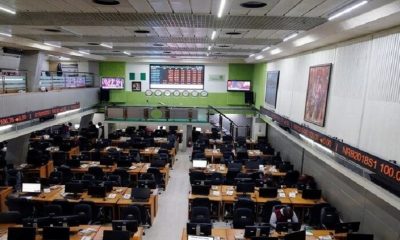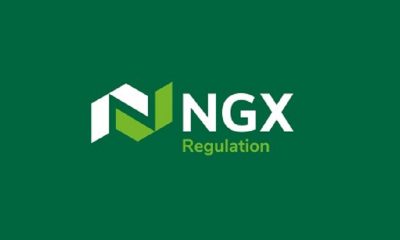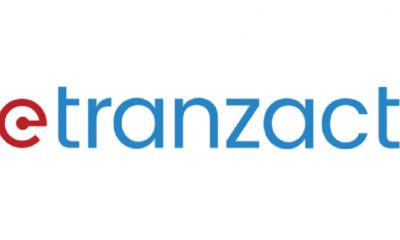Economy
Nigerian Stock Market in ‘Python Dance’ Mood, Further Falls by 0.38%

By Modupe Gbadeyanka
Negative sentiments still persisted on the trading floor of the Nigerian Stock Exchange (NSE) today amid tension in the South Eastern part of the country caused by the deployment of troops to the region for the Operation Python Dance II exercise by the Nigerian Army.
The army started the exercise last Friday to clampdown on members of the Indigenous People Of Biafra (IPOB) led by their leader, Mr Nnamdi Kanu, who want to break away from the country. The military intervention has however received mixed reactions.
But at the resumption of transactions on the floor of the NSE on Monday, bears still held their grip on the market, closing 0.38 percent lower to reduce the year-to-date gain to 29.76 percent.
Business Post recalls that last Friday, the stock market lost 1.84 percent at the close of activities with investors losing N226 billion.
Today, the market capitalisation further went down by N46.5 billion to settle at N12 trillion, while the All-Share Index (ASI) depreciated by 132.50 points to close at 34,873.07 points.
The market, which closed with 14 advancing stocks and 18 depreciating equities, saw Seplat emerging the heaviest decliner, crashing by N24.3k to finish at N456.76k per share.
It was followed by Nigerian Breweries, which fell by N5 to close at N170 per share, and Presco, which slumped by N2.49k to end at N58 per share.
Lafarge declined by 97k to settle at N49 per share, while Oando lost 30k of its share value to finish at N5.75k per share.
On the flip side, GTBank topped the gainers’ chart with N1 growth to close at N38 per share, while Cadbury moved up by 49k to finish at N11 per share.
Furthermore, Newrest ASL Nigeria (Air Service) grew by 32k to end at N6.82k per share, Stanbic IBTC advanced by 30k to finish at N39.50k per share, and Ecobank increased by 20k to close at N18 per share.
Though the volume of shares traded by investors slightly went up today, the value went down by 50 percent as a total of 162.7 million equities exchanged hands today in 3,225 deals worth N1.5 billion against 160 million shares transacted last Friday in 3,367 deals valued at N3 billion.
A breakdown of these transactions showed Access Bank emerging the most traded stocks in terms of volume, exchanging 35.4 million units worth N354.2 million.
It was trailed by Meyer, which moved 18.9 million shares valued at N13.2 million, and Fidelity Bank, which transacted 18.6 million shares valued at N24 million.
FBN Holdings traded 13.8 million shares at N75.7 million, while FCMB exchanged 12.6 million shares valued at N13.2 million.
Economy
FrieslandCampina, Okitipupa Trigger 0.64% Loss at NASD OTC Bourse

By Adedapo Adesanya
Five securities caused the NASD Over-the-Counter (OTC) Securities Exchange to experience a setback of 0.64 per cent on Monday, February 2.
During the first trading session of February 2026, FrieslandCampinaWamco Nigeria Plc shrank by N4.46 to end at N63.54 per unit versus the previous session’s N68.00 per unit, as Okitipupa Plc depreciated by N3.83 to close at N230.77 per share versus last Friday’s N234.60 per share.
Further, Central Securities Clearing System (CSCS) dropped 50 Kobo to sell at N40.00 per unit compared with the previous closing price of N40.50 per unit, UBN Property Plc dipped by 21 Kobo to N1.99 per share from N2.20 per share, and Acorn Petroleum Plc lost 3 Kobo to end at N1.35 per unit versus N1.38 per unit.
As a result, the market capitalisation went down by N13.98 billion to settle at N2.158 trillion, in contrast to the previous value of N2.171 trillion, and the NASD Unlisted Security Index (NSI) contracted by 23.35 points to settle at 3,606.76 points compared with last Friday’s closing value of 3,630.11 points.
Amid the loss, Geo-Fluids Plc managed to finish green after it chalked up 9 Kobo to sell at N6.84 per share versus the N5.75 per share it ended in the last trading day.
Yesterday, the volume of securities traded by investors surged by 1,238.5 per cent to 3.9 million units from 287,618 units, the value of securities increased by 1,075.2 per cent to N36.0 million from N3.1 million, and the number of deals soared by 90.5 per cent to 40 deals from 21 deals.
At the close of trades, CSCS Plc remained the most traded stock by value (year-to-date) with 15.4 million units valued at N623.9 million, followed by FrieslandCampina Wamco Nigeria Plc with 1.7 million units worth N110.2 million, and Geo-Fluids Plc with 10.6 million units sold for N69.9 million.
CSCS Plc was also the most active stock by volume (year-to-date) with 15.4 million units traded for N623.9 million, trailed by Geo-Fluids Plc with 10.6 million units worth N69.9 million, and Mass Telecom Innovation Plc with 10.1 million units transacted for N4.1 million.
Economy
Renewed FX Pressure Weakens Naira to N1,390/$1 at Official Market

By Adedapo Adesanya
The value of the Naira dropped against the United States Dollar in the the Nigerian Autonomous Foreign Exchange Market (NAFEX) on Monday, February 2 by N3.81 or 0.27 per cent to N1,390.36/$1 from the N1,386.55/$1 it traded last Friday.
This was driven by stronger demand for forex at the official market, which outweighed to what was available to meet customers’ needs. But the local currency remained within the expected trading range.
In the same market window, the domestic currency further appreciated against the Pound Sterling during the session by N6.72 to close at N1,899.51/£1 compared with the preceding session’s rate of N1,906.23/£1 and improved against the Euro by N7.70 to trade at N1,644.52/€1 versus the previous trading day’s value of N1,652.22/€1.
In the parallel market, the exchange rate of the Nigerian Naira to its American counterpart remained unchanged yesterday at N1,465/$1 and at the GTBank FX counter, it also maintained stability at N1,419/$1.
The Naira is expected to remain relatively stable in the coming days, boosted by stronger FX liquidity, enhanced price discovery, and a gradual restoration of offshore investor confidence while Nigeria’s external reserves, which provide the Central Bank of Nigeria (CBN) with the capacity to defend the Naira and stabilise the foreign exchange market, have continued to grow steadily.
Updated data showed that Nigeria’s gross external reserves printed at $46.18 billion as of January 29, 2026, reflecting an addition of $62.40 million.
As for the cryptocurrency market, it was bullish after a sharp weekend sell-off while a resurgent US Dollar index, which has logged its strongest two-day gain in nine months, threatened to keep gains in check.
Expectations that US Federal Reserve chair nominee, Mr Kevin Warsh, will be cautious on interest-rate cuts, along with upcoming US jobs data, are seen as potential drivers of further Dollar strength.
The biggest gainer for the session was Cardano (ADA), which rose by 6.2 per cent to trade at $0.2976, Ethereum (ETH) appreciated by 5.5 per cent to $2,319.80, Dogecoin (DOGE) grew by 5.3 per cent to $0.1066, Binance Coin (BNB) gained 4.8 per cent to sell for $776.00, and Solana (SOL) added 4.6 per cent to sell at $103.75.
In addition, Litecoin (LTC) improved by 4.5 per cent to trade at $59.95, Bitcoin (BTC) appreciated by 3.6 per cent to $78,445.62, and Ripple (XRP) expanded by 3.4 per cent to $1.60, while the US Dollar Tether (USDT) and the US Dollar Coin (USDC) traded flat at $1.00 each.
Economy
NGX Index Records Marginal 0.01% Rise Amid Weak Investor Sentiment

By Dipo Olowookere
The Nigerian Exchange (NGX) Limited managed to finish in the green territory on Monday after it marginally closed higher by 0.01 per cent.
The last minute escape from the bears was triggered by the gains posted by large-cap equities like Zenith Bank, Aradel Holdings and others, offsetting the losses recorded by GTCO, Oando, First Holdco and others.
According to data obtained by Business Post, only 29 stocks ended on the gainers’ chart, while 44 equities landed on the losers’ table, indicating a negative market breadth index and weak investor sentiment.
Universal Insurance rose by 10.00 per cent to sell for N1.32, Premier Paints appreciated by 10.00 per cent to N11.00, DAAR Communications improved by 9.93 per cent to N1.55, RT Briscoe increased by 9.92 per cent to N8.64, and Morison Industries advanced by 9.91 per cent to N10.98.
On the flip side, Omatek declined by 10.00 per cent to N2.70, Union Homes REIT declined by 9.96 per cent to N85.40, AXA Mansard shrank by 9.94 per cent to N14.31, Deap Capital decreased by 9.90 per cent to N8.46, and C&I Leasing moderated by 9.80 per cent to N6.90.
On the first trading session of this week, market participants bought and sold 762.8 million shares valued at N18.4 billion in 55,374 deals compared with the 687.4 million shares worth N15.0 billion traded in 41,553 deals last Friday, a spike in the trading volume, value, and number of deals by 10.97 per cent, 22.67 per cent, and 33.26 per cent, respectively.
Tantalizers ended the day as the most active stock with 88.5 million units sold for N329.4 million, Zenith Bank traded 40.2 million units worth N2.9 billion, Veritas Kapital transacted 39.2 million units valued at N92.1 million, Universal Insurance exchanged 29.3 million units for N38.1 million, and First Holdco transacted 27.6 million units worth N1.1 billion.
The sectorial performance yesterday showed that the mood of investors was in the sell region despite the slight growth recorded by Customs Street, as only the energy index closed in green, rising by 2.00 per cent.
The insurance counter was down by 1.99 per cent, the banking industry depleted by 0.64 per cent, the consumer goods shrank by 0.37 per cent, and the industrial goods retreated by 0.08 per cent.
When the first trading day of February 2026 ended on Monday, the All-Share Index (ASI) went up by 14.23 points to 165,384.63 points from 165,370.40 points, while the market capitalization chalked up N9 billion to finish at N106.162 trillion compared with the previous session’s N106.153 trillion.
-

 Feature/OPED6 years ago
Feature/OPED6 years agoDavos was Different this year
-
Travel/Tourism9 years ago
Lagos Seals Western Lodge Hotel In Ikorodu
-

 Showbiz3 years ago
Showbiz3 years agoEstranged Lover Releases Videos of Empress Njamah Bathing
-

 Banking8 years ago
Banking8 years agoSort Codes of GTBank Branches in Nigeria
-

 Economy3 years ago
Economy3 years agoSubsidy Removal: CNG at N130 Per Litre Cheaper Than Petrol—IPMAN
-

 Banking3 years ago
Banking3 years agoSort Codes of UBA Branches in Nigeria
-

 Banking3 years ago
Banking3 years agoFirst Bank Announces Planned Downtime
-

 Sports3 years ago
Sports3 years agoHighest Paid Nigerian Footballer – How Much Do Nigerian Footballers Earn





















